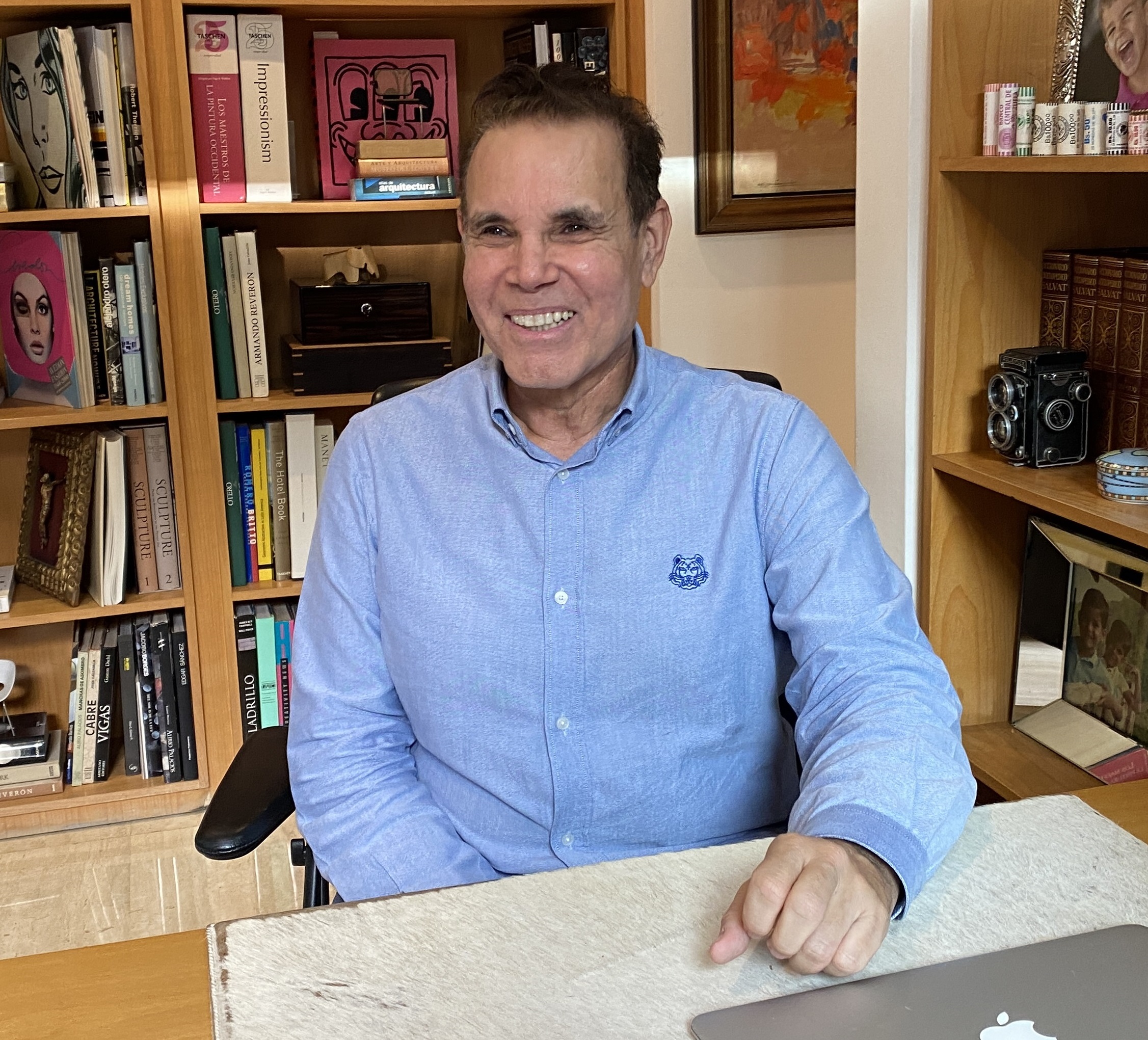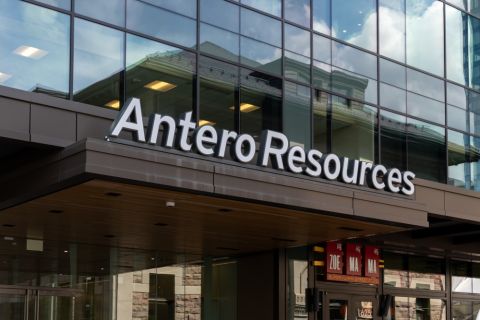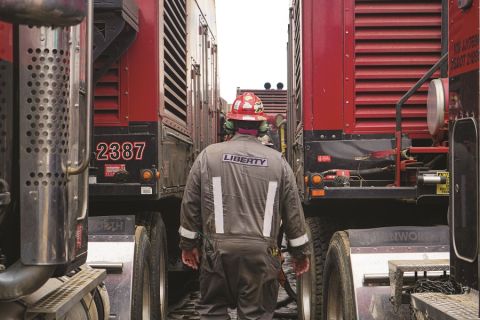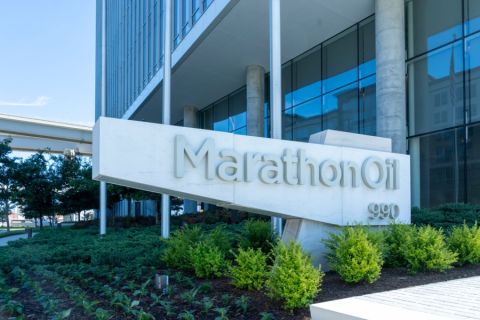Venezuela is being squeezed from within and without. The country’s oil and gas reserves remain under U.S. sanctions enacted in 2019. Internally, politics—the reason for the sanctions—remain problematic, with opposition candidates to President Nicolás Maduro in some cases barred from holding public office.
In an in-depth discussion with Hart Energy, Datanalisis President Luis Vicente León spoke on a range of topics, including Venezuela’s oil sector under the weight of the sanctions, its future as a bulge-bracket—or minimal oil producer—and what it will take for Venezuela to monetize its gas reserves. León also addressed the outlook for Maduro amid the U.S.’ push for “free and fair” elections in 2024 and why Maduro will not negotiate his exit in exchange for oil.

Pietro D. Pitts: Some political pundits say Venezuela under U.S. sanctions will emerge into a quasi-Cuba, but with oil. If Maduro wins reelection in 2024, is that a potential future you envision as well?
Luis Vicente León: I wouldn’t compare it with Cuba, but rather economically speaking with Iran, and not in the religious or fundamentalist sphere, which is something else. From the structural point of view, [Iran] is a more self-sufficient oil economy but has difficulties [commercializing] its oil in international markets. And [Iran] can produce or set up a couple of refineries more adapted to the current world realities.
PDP: But Venezuela is struggling to produce oil and refined products, right?
LVL: Venezuela is producing oil, with great difficulty, and producing gasoline. But Venezuela doesn’t have [financial] resources to upgrade a key refinery or build a modern one. But it could happen in 10 years, assuming Venezuela doesn’t re-enter the oil market [due to the U.S. sanctions] and starts to create things and make agreements with China, Iran, Russia and Turkey and makes concessions that can gradually solve some problems of this type. At that point we could also start to see things like steel production for example, which has bottomed out, come back.
Looking at Europe, what are they looking for? Clean energy. Let's also remember that SIDOR, [Venezuela’s state-owned steel company], was producing clean energy some 35 years ago and this clean energy issue is one that’s now being talked about today. If you start looking around the world for a country and company that can generate steel without polluting the environment, that’s [Venezuela and] SIDOR.
PDP: What can we expect from Venezuela, now producing just under 800,000 bbl/d and still flaring a lot of gas, and [having] issues paying debts with companies from Repsol SA and Eni to ConocoPhillips?
LVL: With the excuse that Maduro is a dictator, the world is being contaminated [with this gas], not just Venezuela. It’s not about money, it’s about the global effects of pollution.
In my opinion, [Venezuela and China] aren’t talking about whether Venezuela will produce oil and gas. What they’re discussing is how much [Venezuela’s] going to produce. If sanctions aren’t finally resolved, Venezuela will end up producing oil for some [country] other than the U.S.
RELATED: Venezuela’s Burning Through Gas and Cash
Repsol or ConocoPhillips have been waiting to collect their debts in Venezuela for a long time. They haven’t been able to because that depends on the American government. Yes, it’s a political decision. But if a response to these situations isn’t given at some point, more legal steps will be taken and the process will be complicated. To all this we must add the issue of China, a problem that Cuba, for instance, doesn’t have.
PDP: Will Washington get its much desired “free and fair” elections in 2024?
LVL: The U.S.’ thesis has permanently been a discussion around transparent elections and the liberation or relaxation of sanctions. In other words, it has included oil negotiations and electoral competitiveness in the same equation. But what’s the probability the Venezuelan government will be judged as partaking in a competitive and transparent election? In my opinion, none.
Among other things, the U.S. government is telling the Venezuelan government to allow the opposition to enter the election [ring] with their hands free, to allow everyone to participate, to have a so-called neutral referee, to allow [political] parties to return and to allow international observers to oversee the elections. That’s to say, all the elements that are really necessary to boast a transparent election process.
But from a U.S. perspective, is it possible to talk of a fair election if there’s a $15 million bounty on one of the election participants, which is Maduro? Could we talk about a fair election if the same participant is not allowed to use the country's money to govern, which interferes with his ability to achieve efficient government management? In other words, what is being proposed is that Maduro steps into the boxing ring with his hands tied behind his back while the opposition is allowed to enter the ring unrestrained. Will [Maduro allow] that to happen? The probability is zero.
PDP: What about “free and fair” elections in exchange for dropping U.S. sanctions?
LVL: Looking at the situation from the point of view of a negotiation theory. This scenario seeks a competitive election in which Maduro turns himself in so that the U.S. in exchange lets him sell oil, is an empty scenario simply because Maduro is not going to turn himself in in exchange for oil. Between 2017-2018, Maduro governed Venezuela without oil, with sanctions, without electricity and without gasoline. Was it possible to get anything out of that situation? No. And now the U.S. is proposing he turn himself in for electricity or oil.
Does the U.S. really think that this is an attractive offer? You can ask any Harvard negotiating-theory analyst if there's even the slightest chance [Maduro will] take it, and he'll tell you no. Because a true negotiation occurs when parties are willing to exchange things that have an equivalent value. Right now, there is no real threat to Maduro, so the idea that he is going to negotiate in exchange for oil is not viable.
RELATED: Commentary: Venezuelan Gas, Trinidad and the US Meddling in the Middle
PDP: Is there someone else within Maduro’s circle that could potentially take over at the top?
LVL: The exit costs could be immense. No matter who you put next to him or Cilia [Flores, Maduro’s wife], no one can be trusted when there's $15 million offered for his capture. Those aren’t the conditions for a leader to hand over power if he doesn’t have a total obligation to do so. If anything, there has to be something that raises his cost of permanence to a level that the power can't be sustained. Assuming that scenario occurred—which I don't believe it will—it would be worth asking: who would be [Maduro’s] replacement? It’s not clear to me, but from a popularity point of view, the [political] figure who really stands out in Chavismo is Rafael Lacava, [the governor of Carabobo state], not Delcy, who has the second-highest popular ranking in the country. The first is held by the El Conde del Guácharo and not by María Corina Machado, who is in third place. If we talk about rankings in terms of votes, María Corina occupies the first position. Of course, in terms of measuring popularity, it’s a bit unfair, probably because a comedian (El Conde) is being compared with politicians, and such a situation is a bit strange.
RELATED: Barred Machado Eyes Venezuela Energy Sector Privatization, Debt Restructuring
PDP: Will neighboring gas-short Trinidad and Tobago ever source Venezuelan gas? What about the possibility of Venezuela creating a gas hub in Güiria to export gas internationally?
LVL: The easiest and least traumatic mechanism for the Venezuelan government, in terms of sanctions, is for the Dragón gas to go directly [to Trinidad]. Yes, you lose control, but the maneuverability capacity [the Venezuelan government] has to bring the gas to shore and then ship it out is much more complex from an operational point of view.
RELATED: Venezuela Flares More Gas than Freeport LNG Exports
Trinidad has more lobbying ability to get permission from the U.S. because you have to think about the following. How much gas does Trinidad have left? Eight years, perhaps 10? Trinidad is a leading Latin American gas producer and [a larger exporter of LNG, methanol and ammonia]. Amid this reality to what extent can Trinidad continue with the production of products so needed in the global market? From the point of view of control, it would be more convenient for the U.S. if everything were to be done through Trinidad.
PDP: Then how does Venezuela monetize its gas reserves?
LVL: My thesis is that the [on again, off again] Venezuelan political negotiations [between the opposition and ruling party] aren’t going to advance, and what will end up happening is a divorce or separation from the economic [side of the economy].
An agreement to relax U.S. sanctions will not be announced. Instead, the U.S. will begin to issue ‘comfort letters’ or make ‘calls,’ because the truth is Repsol, for example, never had a ‘comfort letter’ to make the [oil-for-diesel] swaps, nor did Reliance have such a formal agreement to make them. The agreements were made with a simple phone call from the U.S. State Department to allow the companies to start extracting oil without a formal agreement involved. The U.S. could begin to give some permits and beyond any limitation by [U.S. Sens.] Marco Rubio and Bob Menéndez. And, without a signed agreement, the maneuverable capacity is higher. This is going to be in-line with the dollarization of Venezuela, a factual dollarization, the result of a factual easing and not a formal easing.
Recommended Reading
Keeping it Simple: Antero Stays on Profitable Course in 1Q
2024-04-26 - Bucking trend, Antero Resources posted a slight increase in natural gas production as other companies curtailed production.
Oil and Gas Chain Reaction: E&P M&A Begets OFS Consolidation
2024-04-26 - Record-breaking E&P consolidation is rippling into oilfield services, with much more M&A on the way.
Exxon Mobil, Chevron See Profits Fall in 1Q Earnings
2024-04-26 - Chevron and Exxon Mobil are feeling the pinch of weak energy prices, particularly natural gas, and fuels margins that have cooled in the last year.
Marathon Oil Declares 1Q Dividend
2024-04-26 - Marathon Oil’s first quarter 2024 dividend is payable on June 10.
Talos Energy Expands Leadership Team After $1.29B QuarterNorth Deal
2024-04-25 - Talos Energy President and CEO Tim Duncan said the company has expanded its leadership team as the company integrates its QuarterNorth Energy acquisition.





